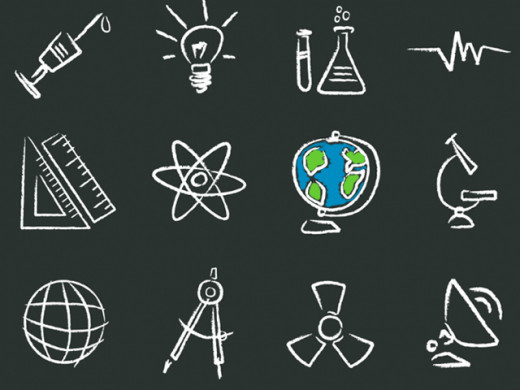The True Meaning Of Life - What's The Point Of Living? Views From Science, Psychology, Religion and Mainstream Education

What IS The Meaning of Life
No matter who we are, young or old, African, Mexican, Chinese or Caucasian, living happily or upset with life, we have all, at some point of another, asked ourselves what is the meaning of life, or, more specifically, what is the meaning of my life? Some of us who simply go along with whatever life throws at us may have yet to ask ourselves this, but it is just a question of when we ask ourselves this question, not if. It is by no means a simple question and even less of an easy one. There are different approaches we can take to tackle one of the biggest questions in the universe. The perspectives we shall take are the scientific, the religious, the psychological and the educational.

What Science Has To Say
In this age of information, as it is so-called because of the Internet and the societal revolution it has catalyzed, provides us with such vast amounts of information at our fingertips, that science tends to be the foremost and most appreciated view when tackling problems and questions of a grand scale.
When we look at biology, we see that, if we were to look at all the main functions of a living organism, all the cumulative actions of the organism is geared to one thing and one thing only: reproduction. The production of offspring whether sexually or asexually that for the continuation of a species. Analysis of GRIMNER, which is an acronym which characterizes all the functions of living organisms, leads to this as it's ultimate conclusion. GRIMNER consists of (G)rowth, (R)espiration, (I)rritability, (M)ovement, (N)utrition, (E)xcretion and (R)eproduction. Darwin's Theory also states that organisms strive for the survival of their genetic code. This answer is a fair answer, but for the most part unsatisfactory. Saying we only here to procreate doesn't explain why we have and do so many other things else.
Chemistry is based on the structures of substances and their interactions with each other. Organic chemistry is the chemistry of the particles that make up the cells of living organisms, these being typically oxygen, hydrogen and carbon, while a few others may be included at times. When we look at Chemistry we see that all chemical reactions involve the making and breaking of bonds. These reactions may give or release energy. Chemistry shows that life is about the use of energy to create(and destroy) substances. This is a far cry from satisfactory. It says nothing about life on a large atomic scale, that is, it does not relate to the activities of beings with such large complex structures with multitudes of cells such as humans.
Physics is all about movement and action. It attempts to understand and describe all the occurrences around us through theories and equations. Similar to Chemistry, it states that all the occurrences require energy for them to happen. Physics sees the purpose of as life the ability to do as much work as possible, expending as little energy as possible, so as to have more "leftover" energy to do more tasks. It really isn't a bad meaning to life but might still be unsatisfactory to some.
So looking at the big picture, science seems to view the point of life as to do use energy to do work, creating (or destroying) substances and structures , all the while saving as much energy as possible, that in the end would give us better and more frequent opportunities at successful reproduction. It does sound okay but scientific tend to disregard what sets us apart from machines as well as, to a lesser extent, animals: our thoughts and emotions.

What Psychology Has To Say
Psychology is the study of the human mind and behaviour. As opposed to the scientific view it includes or perhaps even exaggerates the importance of emotion and thought. It has very many sub-categories and areas of study and can lead to many differing results in case studies because of how complex the mind is and how very different to human beings can be. Psychology tells us that every thought process in an organism influences the organism's behaviour, and is geared toward survival and, to a lesser extent to achieve happiness. So what Psychology tells us is that an organism always focuses on self-preservation and, if this is assured, at least temporarily, an organism will look toward actions that give rewards of gratification. Incorporating the scientific view, it can be said that an organism looks to do as much work as possible all the while ensuring it survives to produce offspring all the while keeping itself pleasured.

What Religion Has To Say
Famed French social scientist Emile Durkheim defines religion as the system to belief and practices relative to those things that are sacred. All religions focus on belief in some deity or supernatural being and engage in practices in servitude of this being. What religion says is tat there exists some supernatural entity to whom we must serve and worship, for one reason or the other, the majority of which is to enjoy the favour of this entity which will benefit us in some way in either life, death or both. This is the purpose of life as stated by religion. The major religions, those being Christianity and Islam among others, reject the pursuit of the pleasure of life and restrict sexual intercourse to be engaged in only under particular conditions however nonetheless encourage procreation under the conditions. All the same, it encourages you to keep your self-fulfilled or feeling complete through positive actions. They also encourage the man to work hard, physically and spiritually, to achieve his goals and success. In doing so it in some ways agrees with the scientific and psychological perspectives while disagreeing in others.

What Mainstream Education Has To Say
We have all passed through some level of educational institution, be it primary, secondary and/or tertiary and know what it's like. We all know what our teachers have expected of us, and the code they have(in some cases tried and failed) drilled into our heads. Study hard, pass your exams and get a good job. Even our parents and family members have taken the teachers side. The societal institution of school teachers uses to pass all their standardized exams and go get a good job. Nothing more, nothing less. Surely this cannot be the meaning of life, but truthfully, it may not be that severe with regard to the extent to which it contradicts the other views of the meaning of life. While this view seems to disregard our pursuit of happiness, it may very well end up leading us to that road as well, agreeing with the differing psychological and religious views simultaneously. Having a good job would means a stable and dependable source of a decent amount of income which is sure to increase your chances of survival and would very well attract a mate that would allow reproduction. And of course, to get a good job, one must work tirelessly and frequently.

The True Meaning Of Life
It would appear that, to any single organism, life means surviving, while doing as much as work possible to achieve success in whatever form one desires, keeping oneself content and by creating offspring. Simply put, life is meant to give life. To give life by preserving life through survival. To give life to others by making the world a better place through one's work, while simultaneously giving life to oneself by keeping one's own self satisfied. To give life to inanimate substances in pursuit of something greater than oneself. To give life by creating new life through reproduction. This is the meaning of life.








